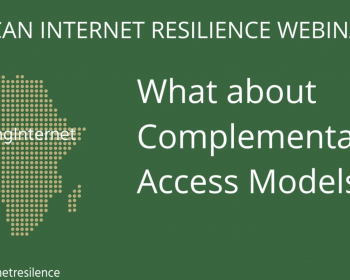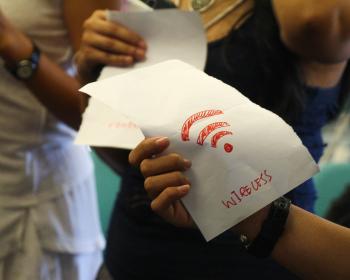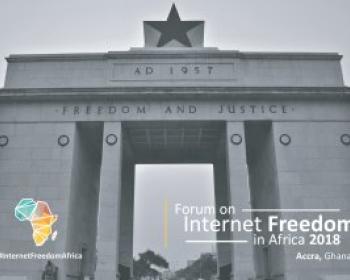Ghana
The fifth session of the African Internet Resilience webinar series took place on 30 July. The focus of the session was to foster a deeper understanding of complementary networks and address the need for internet services in rural and underserved areas across the continent.
"Many women live in rural Africa and it's difficult for mobile operators to afford to extend to all of these areas. But if you can support community networks this means helping women too. So I would say that the first step for women's access is to support community networks."
Women in Ghana, ordinary women and celebrities, have dealt with harassment and violence online, but there is minimal effort by the government currently to effectively address this problem. The suggestion seems to be that self-censorship should solve such problems faced by women.
The Collaboration for International ICT Policy in East and Southern Africa is pleased to announce the fifth edition of FIFAfrica, which will be hosted in partnership with the Media Foundation West Africa and will take place on 26-28 September 2018 in Accra, Ghana.
We, the promoters of the African Declaration on Internet Rights and Freedoms, unanimously adopted and issued the following resolutions.
As West Africa’s fifteen countries migrate to digital TV by 2015, the people responsible for the change-over in Ghana have been struggling to determine which technology to use. Meanwhile the process hasn’t developed much and most Ghanaians have not been informed of this upcoming migration, says the author of new research carried out for APC.
West-African countries are currently in a race against time to switch from analogue to digital broadcasting. A one-day regional workshop held by the West African Telecoms Regulators Assembly (WATRA) and ECOWAS helped establish recommendations and steps for going forward to help those countries undergoing the transition.
The Ghana analog to digital migration workshop brought together almost 40 key stakeholders from the different sectors and provided them with key information of the mandated migration and educated them of the urgency, consequences, cost and strategies that could be taken during this initiative.
African countries are committed to migrating to digital broadcasting by June 2015. Africa’s digital transition in broadcasting has the potential to improve both the quantity and quality of what is available on TV and to increase the number of people who will be able to watch it. However, it is also a costly process and involves decisions on a range of issues which impact on both the costs and...
The Association for Progressive Communications (APC) and Balancing Act, with support from the Open Society Institute (OSI), are undertaking an initiative which looks at the at the benefits and challenges that come with the transition to digital broadcasting in West Africa and the policy issues that need to be addressed. As part of this initiative we have undertaken research on the issue and hav...

Association for Progressive Communications (APC) 2022
Unless otherwise stated, content on the APC website is licensed under Creative Commons Attribution 4.0 International (CC BY 4.0)







